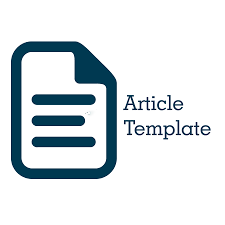Pembinaan Keterampilan Produktif Sebagai Upaya Pemberdayaan Masyarakat Desa Membangun
Abd. Hamid Isa, Zulkarnain Anu
Abstract
The development village paradigm allows villagers to determine their own development priorities and visions because the decisions are made in village deliberations. Another advantage of the village development movement is that rural communities are encouraged to be independent in formulating their steps to build village welfare. Residents also become much more enthusiastic about carrying out the development of their village because they have the right and authority to determine what their village needs. The Thematic Community Service Program by LPPM UNG in 2021 is oriented to improve the quality of the number of UNG lecturers who have been implemented and are able to be efficient for the community according to the mission of the Ministry of Villages PDTT (1) Accelerating sustainable rural and rural development; (2) Develop the economy and investment in Villages and Rural Areas, Disadvantaged Regions, and Transmigration areas. The development of productive skills for rural communities in coastal areas is one of the strategic programs to support the implementation of Thematic Community Service Program. This is important because the coastal area is a priority program for universities to intervene both in terms of educational policies and efforts to accelerate economic resilience which has an impact on increasing income and welfare of the community. The target of developing productive skills for coastal communities through the Thematic Community Service Program is to participate with village communities to provide support for productive skills, especially for people in need as an educational effort on the one hand, and as an alternative solution to developing skills that have economic value to meet the needs of increasing income. and the quality of life of rural communities on the other hand. The achievements of this activity are the implementation of the development of productive skills of the target community, among others, (1) Development and training of tourism awareness groups, (2) BUMDES management, (3) the use of organic waste, (4) training on processed fish products of Sunglir (sulo-sulo), ( 5) katinting machine maintenance skills, and (6) IT public relations training for youth organizations. The level of community participation in this activity is relatively good, it is recommended that such a program be continued as an effort to empower the community to be able to manage their potential independently which in turn can create high efficiency for village development.
Keywords
Village Building; productive skills; community empowerment.
References
Ghufran, M., & K., H. K. (2020). Mencapai Tujuan Pembangunan Berkelanjutan dari Desa. BaKTI News. https://baktinews.bakti.or.id/artikel/mencapai-tujuan-pembangunan-berkelanjutan-dari-desa
Isa, A. H., Napu, Y., & Zubaidi, M. (2017). Prosiding: Seminar dan Lokakarya PLS FIP UNG. In UNG Press.
Kurniawan, B. (2015). DESA MANDIRI, DESA MEMBANGUN. In Cetakan Pertama (p. 27).
LP2M, & UNG. (2021). (Term of Reference) Kuliah Kerja Nyata ( KKN ) Tematik Desa Membangun. https://repository.ung.ac.id/get/kms/22685/TOR-KKN-T-Desa-Membangun-Th-2021.pdf
Tampubolon, D. (2003). STRATEGI PEMBERDAYAAN MASYARAKAT PESISIR DI KABUPATEN KEPULAUAN MERANTI Dahlan Tampubolon Laboratorium Ekonomi Pembangunan Regional Universitas Riau, Pekanbaru. Sorot, 8(2), 153-161.
Yulianti, F., & Goenadhi, L. (2016). Analisis Pemberdayaan Masyarakat Pesisir Kabupaten Tanah Bumbu. Jurnal Spread, 6(2), 17-26.
DOI:
https://doi.org/10.37905/sibermas.v10i3.11223
Refbacks
- There are currently no refbacks.

This work is licensed under a
Creative Commons Attribution-ShareAlike 4.0 International License.
Published by:
LPPM Universitas Negeri Gorontalo
Jln. Jenderal Sudirman No.6 Kota Gorontalo
Homepage : http://lppm.ung.ac.id
E-mail: [email protected]

Jurnal Sibermas (Sinergi Bersama Masyarakat) is licensed under a Creative Commons Attribution-ShareAlike 4.0 International License







